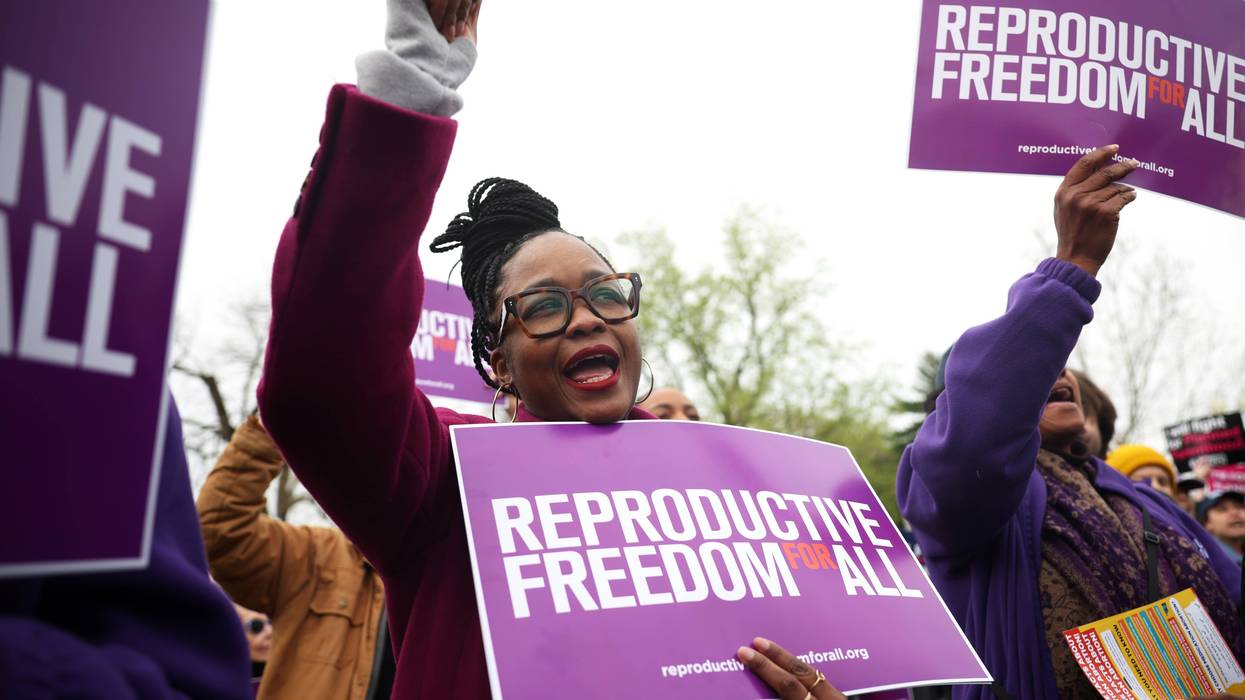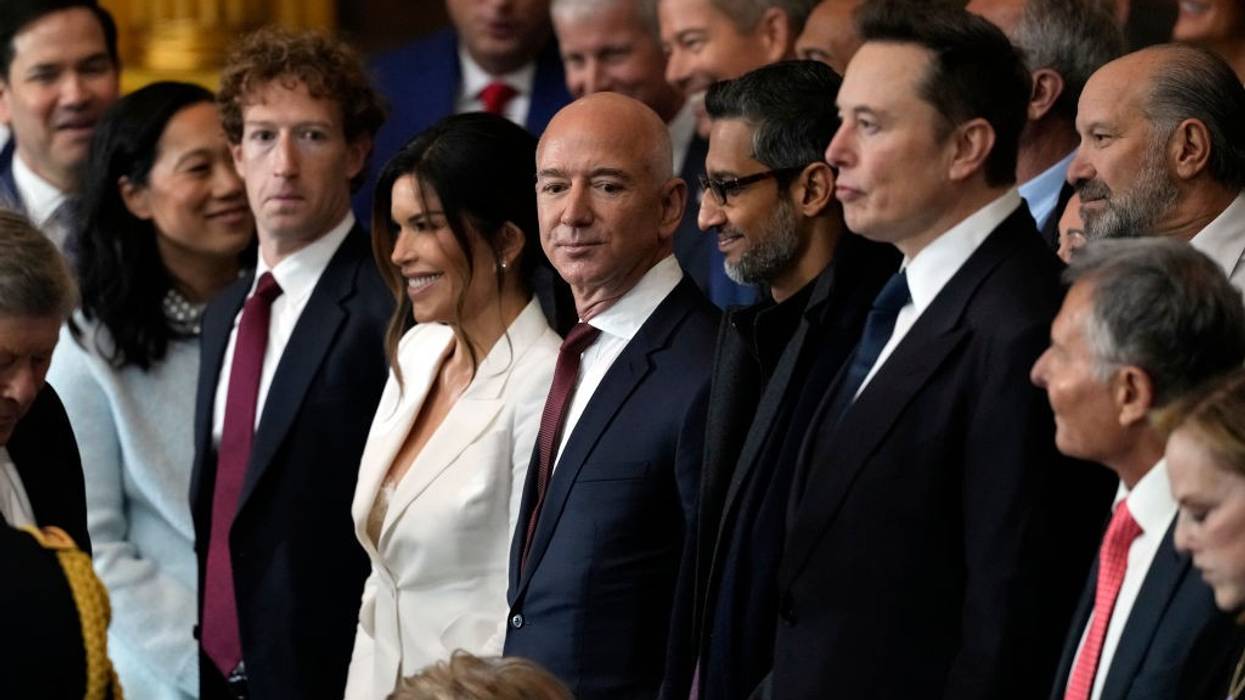Right-wing terror suspect Anders Behring Breivik reportedly killed 76 people in Norway on Friday, by all accounts driven by far-right anti-immigrant politics and fervent Islamophobia. But many early media accounts assumed that the perpetrator of the attacks was Muslim.
On news of the first round of attacks--the bombs in Oslo--CNN's Tom Lister (7/22/11) didn't know who did it, but knew they were Muslims: "It could be a whole range of groups. But the point is that Al-Qaeda is not so much an organization now. It's more a spirit for these people. It's a mobilizing factor." And he speculated confidently about their motives:
You've only got to look at the target--prime minister's office, the headquarters of the major newspaper group next door. Why would that be relevant? Because the Norwegian newspapers republished the cartoons of Prophet Mohammad that caused such offense in the Muslim world.... That is an issue that still rankles amongst Islamist militants the world over.
CNN terrorism analyst Paul Cruickshank (7/22/11) took to the airwaves to declare that "Norway has been in Al-Qaeda's crosshairs for quite some time." He added that the bombing "bears all the hallmarks of the Al-Qaeda terrorist organization at the moment," before adding, almost as an afterthought, that "we don't know at this point who was responsible."
On Fox News Channel's O'Reilly Factor (7/22/11), guest host Laura Ingraham declared, "Deadly terror attacks in Norway, in what appears to be the work, once again, of Muslim extremists." Even after Norwegian authorities arrested Breivik, former Bush administration U.N. ambassador John Bolton was in disbelief. "There is a kind of political correctness that comes up when these tragic events occur," he explained on Fox's On the Record (7/22/11). "This kind of behavior is very un-Norwegian. The speculation that it is part of right-wing extremism, I think that has less of a foundation at this point than the concern that there's a broader political threat here."
Earlier in the day on Fox (7/22/11), Bolton had explained that "the odds of it coming from someone other than a native Norwegian are extremely high." While he admitted there was no evidence, Bolton concluded that "it sure looks like Islamic terrorism," adding that "there is a substantial immigrant population from the Middle East in particular in Norway."
An early Wall Street Journal editorial (7/22/11) dwelled on the "explanations furnished by jihadist groups to justify their periodic slaughters," before concluding that because of Norway's commitment to tolerance and freedom, "Norwegians have now been made to pay a terrible price."
Once the alleged perpetrator's identity did not conform to the Journal's prejudice, the editorial was modified, but it continued to argue that Al-Qaeda was an inspiration: "Coordinated terrorist attacks are an Al-Qaeda signature. But copycats with different agendas are surely capable of duplicating its methods."
Many pundits and outlets had to scramble to justify their ideological presumptions in the wake of the unexpected suspect. Washington Post blogger Jennifer Rubin (7/22/11) had called the Norwegian violence "a sobering reminder for those who think it's too expensive to wage a war against jihadists," citing Thomas Joscelyn of the Weekly Standard's assertion that "in all likelihood the attack was launched by part of the jihadist hydra." In a follow-up post (7/23/11), Rubin insisted that even though she was wrong, she was right, because "there are many more jihadists than blond Norwegians out to kill Americans, and we should keep our eye on the systemic and far more potent threats that stem from an ideological war with the West."
New York Times columnist Ross Douthat (7/25/11) likewise argued that we should respond to the horror in Norway by paying more attention to the alleged perpetrator's point of view:
On the big picture, Europe's cultural conservatives are right: Mass immigration really has left the Continent more divided than enriched, Islam and liberal democracy have not yet proven natural bedfellows and the dream of a postnational, postpatriotic European Union governed by a benevolent ruling elite looks more like a folly every day.... Conservatives on both sides of the Atlantic have an obligation to acknowledge that Anders Behring Breivik is a distinctively right-wing kind of monster. But they also have an obligation to the realities that this monster's terrible atrocity threatens to obscure.
The New York Times' July 23 report explained that while early speculation about Muslim terrorists was incorrect,
there was ample reason for concern that terrorists might be responsible. In 2004 and again in 2008, the No. 2 leader of Al-Qaeda, Ayman al-Zawahri, who took over after the death of Osama bin Laden, threatened Norway because of its support of the American-led NATO military operation in Afghanistan.
Of course, anyone who kills scores of civilians for political motives is a "terrorist"; the language of the Times, though, suggested that a "terrorist" would have to be Islamic.
The Times went on:
Terrorism specialists said that even if the authorities ultimately ruled out Islamic terrorism as the cause of Friday's assaults, other kinds of groups or individuals were mimicking Al-Qaeda's brutality and multiple attacks.
"If it does turn out to be someone with more political motivations, it shows these groups are learning from what they see from Al-Qaeda," said Brian Fishman, a counterterrorism researcher at the New America Foundation in Washington.
It is unclear why any of Breivik's actions would be considered connected in any way to terrorist groups like Al-Qaeda, which certainly did not invent the idea of brutal mass murder. But the Times was able to turn up another expert the following day who saw an Islamist inspiration for Islamophobic terrorism (7/24/11):
Thomas Hegghammer, a terrorism specialist at the Norwegian Defense Research Establishment, said the manifesto bears an eerie resemblance to those of Osama bin Laden and other Al-Qaeda leaders, though from a Christian rather than a Muslim point of view. Like Mr. Breivik's manuscript, the major Qaeda declarations have detailed accounts of the Crusades, a pronounced sense of historical grievance and calls for apocalyptic warfare to defeat the religious and cultural enemy.
"It seems to be an attempt to mirror Al-Qaeda, exactly in reverse," Mr. Hegghammer said.
To the paper's credit, the Times' Scott Shane wrote a strong second-day piece (7/25/11) documenting the influence of Islamophobic bloggers on Breivik's manifesto:
His manifesto, which denounced Norwegian politicians as failing to defend the country from Islamic influence, quoted Robert Spencer, who operates the Jihad Watch website, 64 times, and cited other Western writers who shared his view that Muslim immigrants pose a grave danger to Western culture.... Mr. Breivik frequently cited another blog, Atlas Shrugs, and recommended the Gates of Vienna among websites.
(Spencer was one of the anti-Muslim pundits profiled in FAIR's 2008 report, "Meet the Smearcasters: Islamophobia's Dirty Dozen.")
Shane's piece noted that the document, rather than being an Al-Qaeda "mirror," actually copied large sections of Ted Kaczynski's 1995 Unabomber manifesto, "in which the Norwegian substituted 'multiculturalists' or 'cultural Marxists' for Mr. Kaczynski's 'leftists' and made other small wording changes."
It is not new for media to jump to the conclusion that Muslims are responsible for any given terrorist attack; the same thing was widespread after the 1995 Oklahoma City bombings (Extra!, 7-8/95). "It has every single earmark of the Islamic car-bombers of the Middle East," syndicated columnist Georgie Anne Geyer (Chicago Tribune, 4/21/95) asserted. "Whatever we are doing to destroy Mideast terrorism, the chief terrorist threat against Americans, has not been working," wrote New York Times columnist A.M. Rosenthal (4/21/95). "Knowing that the car bomb indicates Middle Eastern terrorists at work, it's safe to assume that their goal is to promote free-floating fear," editorialized the New York Post (4/20/95). It is unfortunate that so many outlets have failed to learn any practical lessons from such mistakes--or question the beliefs that drive them.




